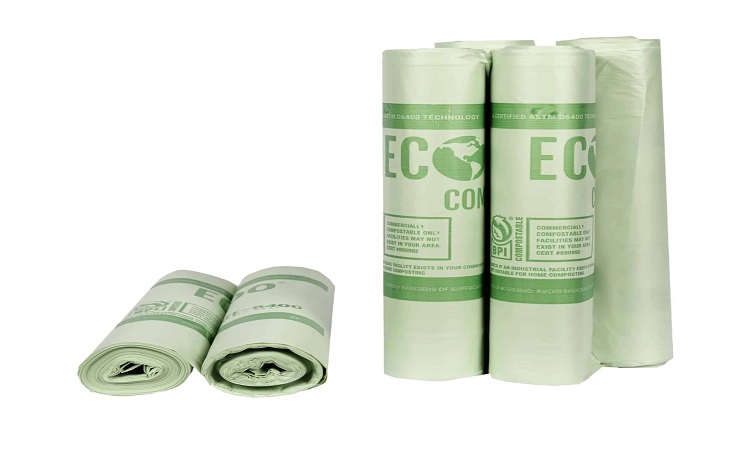Earth-Friendly Solutions: Biodegradable Garbage Bags

Are you tired of contributing to the never-ending landfill problem? Do you want to make a positive impact on the environment without compromising convenience? Look no further than biodegradable garbage bags! These innovative solutions are here to revolutionize waste management and help us move towards a more sustainable future. In this blog post, we will explore what exactly biodegradable garbage bags are, how they’re made, their benefits, as well as any potential drawbacks. So let’s dive in and discover why these Earth-friendly alternatives are gaining popularity among eco-conscious individuals worldwide!
What are biodegradable garbage bags?
Biodegradable garbage bags are an eco-friendly alternative to traditional plastic bags used for waste disposal. Unlike regular plastic bags that can take hundreds of years to decompose, biodegradable garbage bags are designed to break down naturally and return to the environment in a shorter period of time.
These innovative bags are typically made from renewable resources such as plant-based materials like cornstarch, vegetable oils, or even compostable polymers. The use of these sustainable materials ensures that the production process has a lower carbon footprint compared to traditional plastic bag manufacturing.
One key characteristic of biodegradable garbage bags is their ability to undergo degradation through natural processes such as exposure to sunlight, heat, moisture, and microorganisms present in soil or water environments. As they degrade, they release less harmful chemicals into the environment compared to conventional plastics.
In addition to being more environmentally friendly during decomposition, biodegradable garbage bags also offer similar functionality and durability as their non-biodegradable counterparts. They come in various sizes and strengths suitable for different types of waste disposal needs.
By switching to biodegradable garbage bags, individuals can actively contribute towards reducing plastic pollution while still efficiently managing their household waste. These eco-friendly alternatives provide a practical way for responsible waste disposal without sacrificing convenience or quality.
How are biodegradable garbage bags made?
Biodegradable garbage bags are an eco-friendly alternative to traditional plastic bags, as they are designed to break down naturally over time. But have you ever wondered how these innovative bags are made?
The production of biodegradable garbage bags starts with the selection of materials that can decompose quickly and safely. These materials often include plant-based polymers such as cornstarch or vegetable oils, which are renewable resources. By using these natural ingredients, manufacturers reduce the reliance on non-renewable fossil fuels.
Once the appropriate materials are chosen, they go through a manufacturing process that involves mixing them with additives like enzymes or microbes. These additives help speed up the decomposition process by breaking down the bag’s structure when exposed to specific conditions.
After blending all the components together, it’s time for extrusion – a process in which molten material is forced through a die to create thin strands known as film. This film is then cooled and later cut into sheets before being transformed into individual garbage bags.
To ensure quality control and sustainability standards, many manufacturers also follow certifications like ASTM D6400 or EN 13432 when producing biodegradable garbage bags. These certifications guarantee that the product meets specific criteria for compostability and environmental impact reduction.
By understanding how biodegradable garbage bags are made, we can appreciate their contribution towards reducing plastic waste and protecting our planet from harmful pollution. So next time you use one of these environmentally friendly alternatives, remember its journey from raw materials to your trash bin!
What benefits do biodegradable garbage bags have?
Biodegradable garbage bags offer numerous benefits that make them an excellent choice for environmentally conscious individuals. First and foremost, these bags are designed to break down naturally over time, reducing the amount of plastic waste in landfills. This means less harm to our planet and a healthier future for generations to come.
Another advantage of biodegradable garbage bags is their versatility. They can be used for various purposes such as storing food scraps, disposing of pet waste, or organizing recyclables. With their strong construction and leak-proof design, these bags provide reliable containment while also being eco-friendly.
In addition to their environmental benefits, biodegradable garbage bags help reduce odors commonly associated with traditional plastic trash bags. Their natural materials allow for better airflow, preventing the buildup of unpleasant smells in your home or workplace.
Furthermore, choosing biodegradable options supports sustainable manufacturing practices. Many brands use renewable resources like cornstarch or plant-based polymers instead of relying solely on non-renewable fossil fuels. By supporting these companies, you contribute to the development of greener technologies and promote a circular economy.
Using biodegradable garbage bags can inspire others around you to adopt more sustainable habits as well. When friends and family see your commitment to reducing plastic waste firsthand, they may reconsider their own choices and join the movement towards a cleaner planet.
By opting for bags, you not only make a positive impact on the environment but also enjoy practical advantages such as reduced odors and improved sustainability practices throughout the supply chain
What are the disadvantages of biodegradable garbage bags?
While biodegradable garbage bags may seem like the perfect solution for reducing waste and minimizing environmental impact, they do come with a few drawbacks. Here are some potential disadvantages to consider:
1. Cost: One of the main downsides of bags is their higher price compared to traditional plastic bags. The production process for these bags involves using more expensive materials and technologies, which can drive up the cost.
2. Durability: Biodegradable garbage bags may not be as durable as conventional plastic bags, making them prone to tearing or puncturing when filled with heavy or sharp objects. This can be frustrating and lead to additional waste if you need to use multiple bags.
3. Limited Availability: While awareness about eco-friendly alternatives is growing, bags may still be less readily available in certain areas compared to regular plastic options. This limited availability can make it challenging for consumers who want to switch but cannot find these products easily.
4. Timeframe for Degradation: Although marketed as “biodegradable,” these types of garbage bags often require specific conditions (such as high temperatures) in order to decompose properly. If disposed of improperly or sent to landfill sites that lack those conditions, they may not break down as quickly or effectively.
5. Misuse and Confusion: Some people mistakenly assume that all types of “biodegradable” plastics will naturally decompose in any environment without harmful effects. However, this is not always the case since specialized composting facilities are sometimes necessary for proper degradation.
It’s important to weigh both the advantages and disadvantages before deciding whether bags are right for your needs and circumstances!
It’s important to weigh both the advantages and disadvantages before deciding whether bags are right for your needs and circumstances!
Conclusion
In today’s world, where environmental concerns are at the forefront of our minds, finding earth-friendly solutions for everyday tasks is more important than ever. Biodegradable garbage bags offer a promising alternative to traditional plastic bags and can make a significant impact on reducing waste and pollution.
These innovative bags are made from plant-based materials that break down naturally over time without leaving harmful residues behind. By choosing bags, you can contribute to the effort of preserving our planet for future generations.
However, it is essential to note that while bags have many benefits, they also have some disadvantages. They may not degrade as quickly in landfills due to lack of oxygen or sunlight exposure. Additionally, their production requires resources such as water and energy. By choosing bags, you can contribute to the effort of preserving our planet for future generations.
Nevertheless, by weighing these pros and cons carefully and making informed choices about disposal methods or opting for composting facilities when available, we can maximize the positive impact of using bags.
Incorporating eco-friendly practices into our daily lives is an ongoing process. Choosing bags is just one small step towards creating a more sustainable future. So let’s take action now by embracing these earth-friendly alternatives and working together towards a greener planet!





